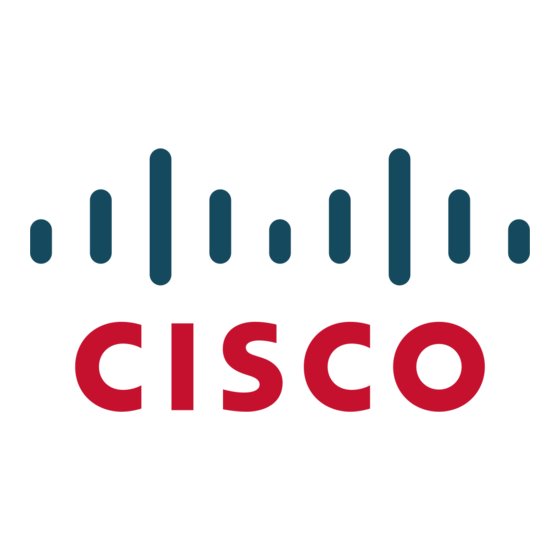Cisco 12 series Manual do sistema - Página 25
Procurar online ou descarregar pdf Manual do sistema para Telefone IP Cisco 12 series. Cisco 12 series 36 páginas. Cisco unified ip phones chapter 43
Também para Cisco 12 series: Manual do sistema (50 páginas)

Chapter 43
Cisco Unified IP Phones
Immediate Divert
The Immediate Divert feature allows the invoker to immediately divert a call to a voice-messaging
system. Managers and assistants, or anyone who shares lines, use this feature. When the call gets
diverted, the line becomes available to make or receive new calls.
If the Use Legacy iDivert service parameter is set to False, the invoker can select a party voice mailbox
to which to divert an incoming call. The invoker can choose between the original called party voice
mailbox or the voice mailbox of the invoker.
To access the Immediate Divert feature, use the iDivert softkey. Configure this softkey by using the
Softkey Template Configuration window of Cisco Unified CallManager Administration. The softkey
template gets assigned to phones that are in the Cisco Unified CallManager system.
For more information about Immediate Divert, refer to
CallManager Features and Services Guide.
Join
By using the Join softkey, a user can join up to 15 established calls (for a total of 16) to create a
conference. For more information about Join, see the
Directory Number" section on page
Malicious Call Identification (MCID)
The MCID feature provides a useful method for tracking troublesome or threatening calls. When a user
receives this type of call, the Cisco Unified CallManager system administrator can assign a new softkey
template that adds the Malicious Call softkey to the user phone. For POTS phones that are connected to
a SCCP gateway, users can use a hookflash and enter a feature code of *39 to invoke the MCID feature.
For more information about MCID, refer to the
Unified CallManager Features and Services Guide.
Quality Report Tool
The Quality Report Tool (QRT), a voice-quality and general problem-reporting tool for Cisco Unified
IP Phones, allows users to easily and accurately report audio and other general problems with their IP
phone. QRT gets loaded as part of the Cisco Unified CallManager installation, and the Cisco Extended
Functions (CEF) service supports it.
As system administrator, you enable QRT functionality by creating, configuring, and assigning a softkey
template to associate the QRT softkey on a user IP phone. You can choose from two different user modes,
depending upon the level of user interaction that you want with QRT. You then define how the feature
will work in your system by configuring system parameters and setting up Cisco Unified CallManager
Serviceability tools. You can create, customize, and view phone problem reports by using the QRT
Viewer application.
Support for the QRT feature extends to any model IP phone that includes the following capabilities:
Support for softkey templates
•
Support for IP phone services
•
Controllable by CTI
•
Contains an internal HTTP server
•
Note
For more information, refer to the following URL for the appropriate Cisco Unified IP Phone guide for
your phone model:
http://www.cisco.com/univercd/cc/td/doc/product/voice/c_ipphon/index.htm.
OL-14153-01
Immediate Divert
"Making and Receiving Multiple Calls Per
18-7.
"Malicious Call Identification"
Cisco Unified CallManager System Guide
Phone Features
in the Cisco Unified
chapter in the Cisco
43-25
